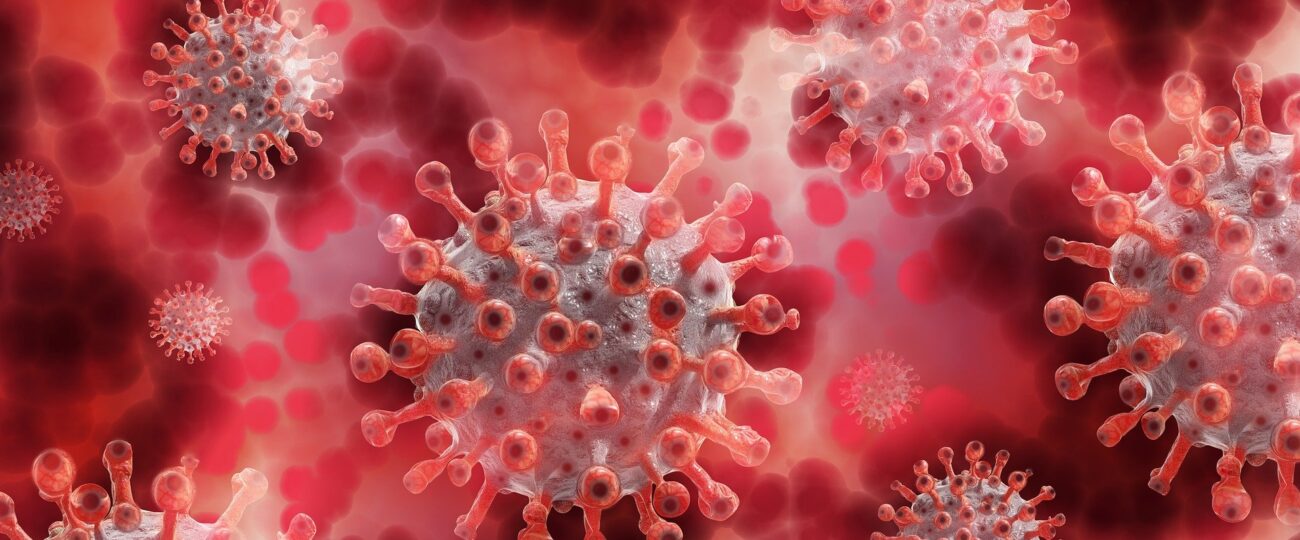As the new Omicron variant of SARS-CoV-2, the virus that causes COVID-19, spreads quickly around the world, health authorities like the Center for Disease Control and the S.C. Department of Health and Environmental Control continue to loosen guidelines; however, Winthrop University maintains fall semester protocols.
In an email to the university, President Hynd addressed concerns about the Omicron variant and the possibility of moving back to virtual instruction by stressing continued prevention methods.
“We have proven as a community working together that we can stay in-person safely (as we did last semester when the Delta variant was surging) by enforcing our masking requirement, physically distancing and avoiding crowds,” he said.
According to the email, the Environmental Health and Safety team is in the process of procuring KN95 masks, which are proven to be more effective at preventing COVID-19 transmission. 74% of in-person students are vaccinated, meeting expert estimates of herd immunity.
Winthrop will hold another combined testing and vaccination clinic on Tuesday, Feb. 15, from 9 a.m. to 3 p.m. in McBryde hall.
According to the COVID-19 dashboard, 27 students have tested positive since Jan. 10; however, these numbers are self-reported and only reflect those who were on campus when infectious.
Students who report their test results through the Medicat Patient Portal will have their COVID-19 related absences excused through the Dean of Students Office. However, according to Autumn Hawkins, a senior education major, as soon as you receive a negative COVID-19 test, you are required to go back to class, even if you are still experiencing symptoms.
“I had migraines. I was dizzy. I had a fever of like 100. I was coughing and sneezing. But my test showed I didn’t have COVID anymore, so I had to go back to school the day I was cleared,” Hawkins said.
Winthrop has no guidelines to provide assistance beyond excusing absences to those quarantining, which leaves some students, like Hawkins, still attending class on Zoom and completing classwork while sick.
“I was so far behind because I was expected to do all of my assignments on time and go to Zoom meetings for my classes, because all my classes were supposed to be in person. But, I had to do all that while actively having COVID and still cooking and cleaning my apartment,” Hawkins said.
While Winthrop’s guidelines have stayed the same, CDC and DHEC guidelines are changing to be less restrictive.
The CDC recently changed the isolation recommendation for those who test positive with COVID-19 from 10 days to five, as long as they are asymptomatic and wear a mask for an additional five days.
DHEC recently updated teacher quarantine guidance to align with healthcare workers, meaning that teachers who are exposed to COVID-19 are not required to quarantine if they show no symptoms of the virus, even if they are not vaccinated. However, special guidance is given to those not maximally vaccinated.
“School teachers and staff who are not maximally (up to date) vaccinated and who have been exposed to COVID-19 but have no symptoms do not need to quarantine, as long as they have a negative test on day five after their exposure and wear a mask for 10 days after exposure,” according to a DHEC press release.
Cases of COVID-19 are projected to fall soon as the virus spreads quickly through the population.
“The Omicron and Delta variants will eventually find less susceptible hosts to infect and so they will eventually die out. The Omicron variant is extremely infectious, so it is moving quickly through the population. It will most likely go down soon in many parts of the U.S. that have seen the increases,” Dwight Dimaculangan, biology department chair, said.
While these variants may decline in number, Dimaculangan warns new variants could appear at any time.
“Note that epidemiologists are still learning how this virus acts, how it spreads, and how fast it can mutate. Although the infection rate of the current strains may go down, there may be other highly infectious and deadly strains of SARS-COV-2 that may show up. Especially since in many parts of the world the virus is running rampant unchecked and it has a chance to mutate at a high rate,” he said.
Dr. Fauci, chief medical advisor to the president of the United States, has expressed his opinion that the virus will become endemic, meaning it will return yearly like the flu rather than being eliminated fully. Dimaculangan agrees.
“Most epidemiologists think the SARS-COV-2 virus will follow the same pattern as most disease-causing viruses, where they become less virulent (cause less severe disease) and cycle through the population on a regular basis,” he said.
“So yes, I agree with Dr. Fauci. Remember, he is the director of the National Institute of Allergy and Infectious Diseases who regularly interacts with many of our country’s best scientists working to fight disease. He is one of our country’s greatest authorities on infectious diseases. It’s unfortunate that some in our country have politicized the pandemic and our efforts to combat the disease.”




